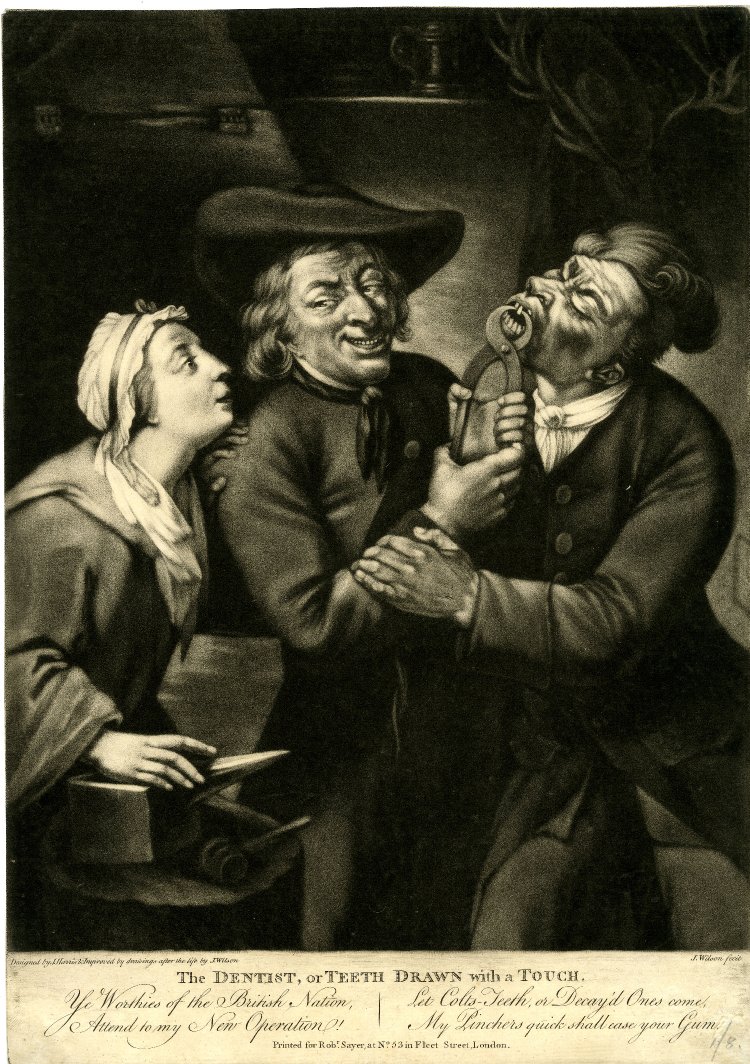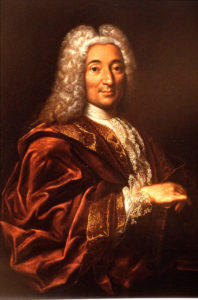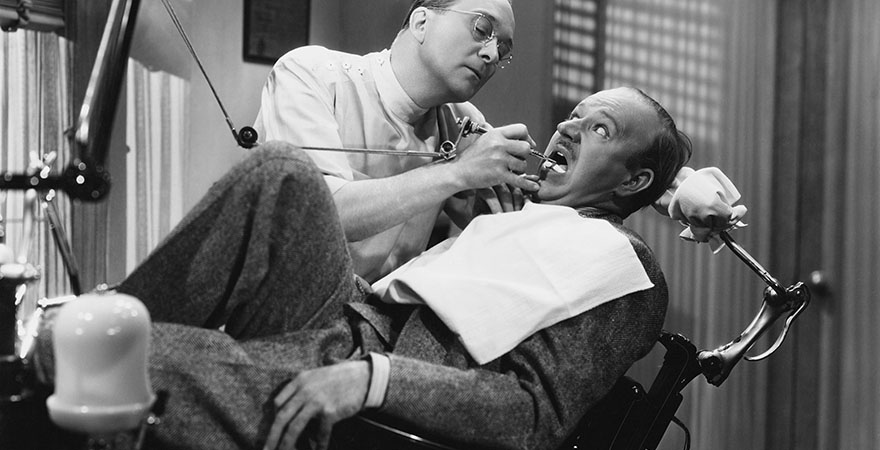Horrors of Early Dentistry
Despite the fact that the first successful organ transplant was performed in 1954, organ transplantation is not a novelty. Rather, it is an intriguing subject that has been around for years. Field of dentistry has witnessed remarkable breakthroughs during the past centuries. If you fear a visit to the dentist, imagine what it was like in the 18th century, Europe.
Prior to the 18th century, there were no proper dentists. Living with rotten, decayed teeth was part of daily life. Any a major toothache would result in extraction performed by none other than a rookie dentist, surgeon-barber or blacksmith. Patients had to lay on the floor and have their head in between the surgeon’s knees for an agonizing amount of time without anesthetics in order to have their teeth extracted. Instruments used to accomplish the task resembled barbaric tools that included hammers, strings, and turnkeys. Barber-surgeons would often hang a row of extracted rotten teeth outside of their shops as a way of advertising their services. Not all extractions were successful though. The death toll began to rise as a result of infections and complications associated with tooth extraction. The fear of horrific and painful extractions quickly became widespread in Europe.

Sugar consumption became more prevalent among the rich in the 18th century. Its increased usage in a daily diet contributed to the rise of dental cavity leading to more extractions. The wealthy began to grow increasingly unhappy to appear in public with missing teeth. Around the same time, the surgeons started experimenting with implants, where the decayed tooth was replaced by a donor’s tooth. The poor had better teeth compared to the rich since they couldn’t afford sugary food in their diet. It became a trend for the poor to sell their healthy teeth to raise cash in order to pay their debts. Healthy human teeth suddenly became such a prized commodity that ads started appearing in the newspapers looking for donors offering cash incentives. However, it was only the wealthy who could afford healthy live teeth. That changed with the battle of Waterloo. The removal of corpse’s teeth that flooded the market enabled the toothless middle class to afford new teeth as well. The craze became so rampant that grave robbers started to emerge selling corpse’s teeth for a profit.
As time progressed sugar and tobacco became more readily available to the middle class. Their consumption lead to an increase in dental cavity which was now affecting a larger segment of the population creating a market for dentures. George Washington was among the first who started wearing dentures. The early dentures were extracted from the corpuses teeth, they were cumbersome to eat or talk with. As time progressed, the upper class grew unhappy with using the dead man’s teeth. Dentists were forced to develop better techniques using material other than morbid teeth for creating dentures.
 Until the 18th century dentists and barbers belonged to the same guild. A group of elite dentists who didn’t want any association with the ranks of barber-surgeons started to separate themselves. The elite group identified themselves as physicians. Thus paving the way for dentistry to become its own field of medicine. This field was further revolutionized by the works of a French Physician, Pierre Fauchard who is credited with being the father of modern dentistry. He was the first to publish a book on dental anatomy and methods of operation and restoration. He made remarkable improvements to dental instruments. At the time when extraction was the only option for decayed teeth, Fauchard introduced dental fillings as a way to treat them. He also recommended using a comfortable chair for the patients as opposed to sitting or lying on the floor. For many years people believed that a worm was responsible for cavity thus causing the tooth to decay. After extensive research using a microscope, Fauchard put this theory to rest. He did assert that sugar contributes to dental decay.
Until the 18th century dentists and barbers belonged to the same guild. A group of elite dentists who didn’t want any association with the ranks of barber-surgeons started to separate themselves. The elite group identified themselves as physicians. Thus paving the way for dentistry to become its own field of medicine. This field was further revolutionized by the works of a French Physician, Pierre Fauchard who is credited with being the father of modern dentistry. He was the first to publish a book on dental anatomy and methods of operation and restoration. He made remarkable improvements to dental instruments. At the time when extraction was the only option for decayed teeth, Fauchard introduced dental fillings as a way to treat them. He also recommended using a comfortable chair for the patients as opposed to sitting or lying on the floor. For many years people believed that a worm was responsible for cavity thus causing the tooth to decay. After extensive research using a microscope, Fauchard put this theory to rest. He did assert that sugar contributes to dental decay.
For all his revolutionary ideas Fauchard had one idea that caused a great deal of resistance by his peers and patients. He recommended using your own urine to clean your teeth because of its beneficial properties. Unknown at the time urine contains ammonia which attributes to its beneficial properties.

